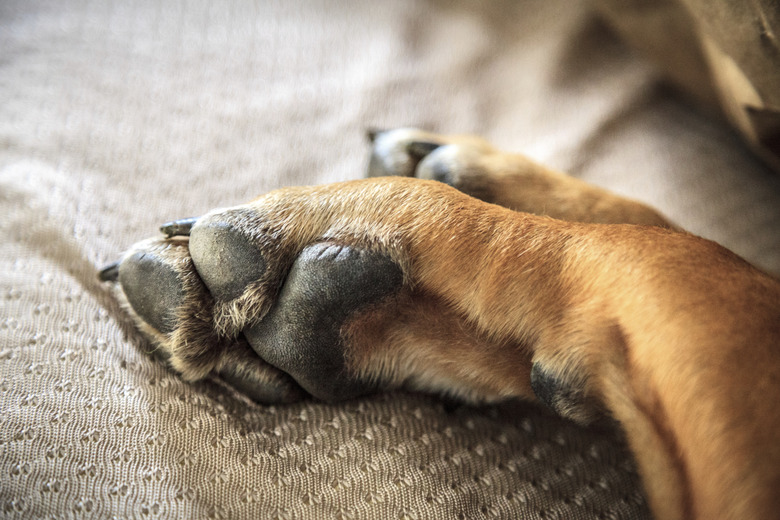Why Does My Dog Paw At My Face?
Sometimes, no matter how much attention we give our dogs, according to them, it is never enough. They always want one more toss of the ball, one more walk around the block, or one more head scratch. If you're saying to yourself, "Why is my dog pawing at my face?," it could be as simple as the dog wanting more attention.
Dog paws and communication
Dog paws and communication
Dogs use their paws along with their voice to communicate. When their barks or yips don't seem to be doing the trick, they will often get physical. Sometimes, we humans encourage them to use their paws by teaching them how to shake.
Using their paws to communicate with us is as natural as a toddler grabbing your arm when he is trying to tell you that he wants to play. When our dogs paw at us, they are simply communicating in one of the only ways that they can. Sometimes, it's welcome, and it's cute, but when their paws are on your face, it can definitely be annoying.
Why is my dog pawing at my face?
Why is my dog pawing at my face?
When your dog is pawing at your face, perhaps it could just be a bad habit that is caused by your dog getting a reward when he uses his paws in other ways. If your dog pawing at your face seems to be an outgrowth of a habit he picked up by using his paws to get attention, some positive rewards and treats might be enough to get him to stop.
According to Canidae, there are many reasons your dog might decide to use his paws and paw at your face. Most of the time, he simply wants attention. If you're busy reading a book and your dog is quietly sitting next to you, he might paw at your leg or your face to remind you that he's there and would like you to pay attention to him.
It's also common for a dog to reach out with his paws if he's been scolded. When he puts his paws on your face or shoulders at a time like this, it's almost like he's offering an apology and looking for a hug, says Love Your Dog. You will probably also see his tail between his legs and his head held down. This is a time when he can tell by your tone of voice and facial expression that he has done something wrong, and he's looking for reassurance.
Your dog needs something
Your dog needs something
Your dog might be pawing at your face to let you know she needs something. She might be in pain or extra hungry or even trying to remind you that you're late for the evening walk. It might not be subtle to have a dog pawing at your face, but it does the job of getting your attention.
Some dogs like to be touched a lot. Try to examine the times during which she does it. If she's reaching out to you when you're having cuddle time on the couch, it could be as simple as just trying to feel connected to you. If she does it when you're distracted and you haven't played with her in a while, she could be telling you she's overdue for some playtime.
How to prevent problems
How to prevent problems
If your dog pawing at your face is disruptive or if it bothers you, try to prevent some potential problems until you can break the habit. Keep your dog's nails trimmed short. If your dog is pawing at your face, he could accidentally scratch your face or eye with a sharp claw.
Take him for some extra walks to tire him out and give him some extra attention to see if that helps. Keep your face away from his "paw zone" if you can. Remember to use a happy tone of voice and positive behavior when he's not pawing at you and reward him ahead of time for being good. Reward him if he starts to paw at your face and then stops.
Eventually, you'll figure out why he's pawing at you, and you'll be able to give him what he wants. If it's just a habit that he uses as a means of communication, you might be able to redirect him toward a more positive behavior.
